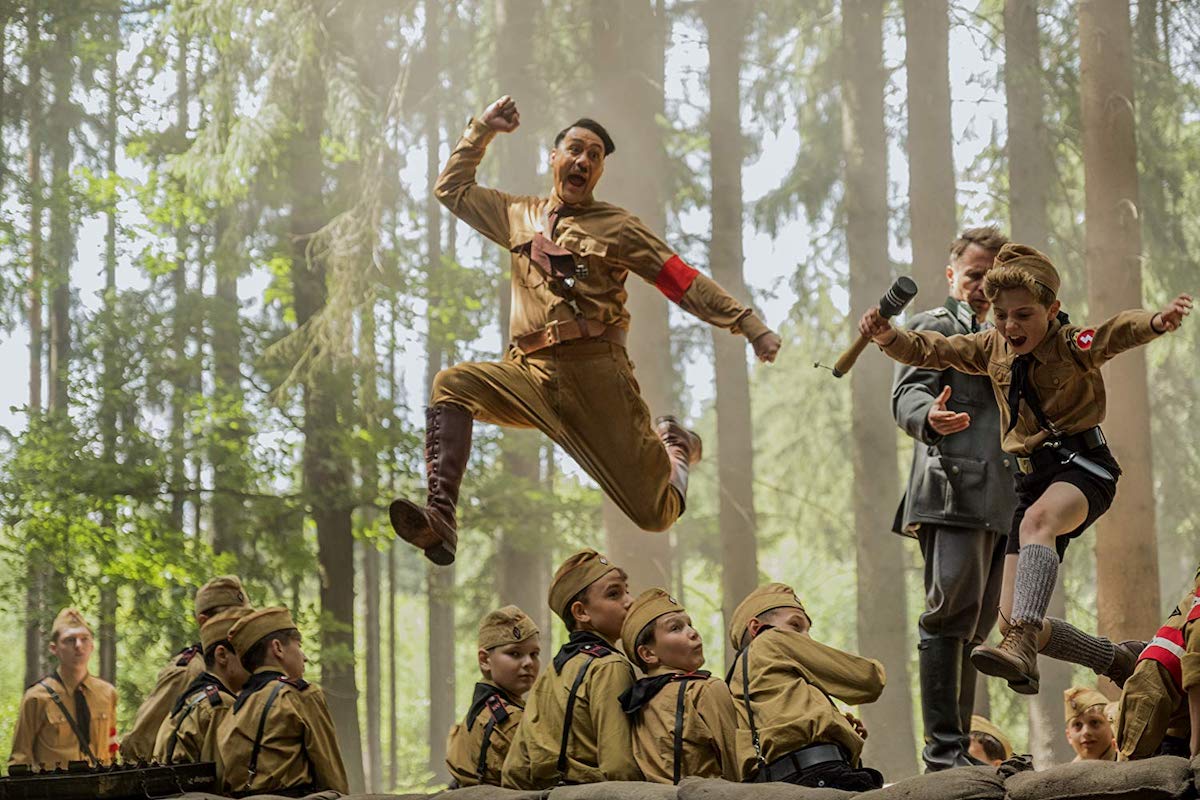World War II movies are so common these days. We are no strangers to three-hour prestige projects centered on such narratives of good versus evil. But what we get with Jojo Rabbit is something decidedly more modest—a funny little story from director Taika Waititi. The film depicts a thoughtful boy, Jojo, in a Hitler Youth troupe who discovers that his mother is hiding a Jewish girl, Elsa, in their home.
Jojo (Roman Griffin-Davis) wants to hold the party line at first but softens as he gets to know Elsa (Thomasin McKenzie). It’s a kids-eye view of bigoted stereotypes and the complex lives of the adults we trust most.
None of this might seem like good ingredients for an irreverent comedy. But make no mistake, Jojo Rabbit is quite funny, even when it’s heartbreaking. And Waititi’s light take on fascism and nobility in the face of great evil works well. That’s in spite of how unfunny it all might seem on paper.
We already know what a wonderful writer Waititi is. (Remember What We Do in the Shadows?) And he’s proven himself quite capable of using established material to craft quirky and delightfully surprising scripts (case in point: Thor: Ragnarok). But Jojo Rabbit is an altogether more challenging proposition. How do you make Nazis funny without resorting to the Hogan’s Heroes model?
Waititi accomplishes this with tone and balance. Still, it’s easy to dismiss this film as trite given its inherently serious themes. And it’s even easier to simply accuse Waititi of making a Wes Anderson knock-off and write off Jojo Rabbit as derivative. Both criticisms hold up if you are willing to miss the point of the endeavor entirely. The costumes and sets do have that two-dimensional, saturated dollhouse effect Anderson has perfected. And the most difficult emotional moments in the story do feel a bit like a sucker punch after so much silliness. That’s the trick, though, isn’t it? We’ve taken so many grim trips into this conflict over the last few decades. We understand the horror on a gut level and don’t need to be told how to feel about it anymore.
Maybe, instead, it helps to consider the absurdity of such times once in a while. Quentin Tarantino did something similar in 2009 with Inglourious Basterds. But Jojo Rabbit is a less fussy and more compact kind of storytelling.
The acting is mostly top-notch. Davis has clear gifts for timing and physical subtlety that make him seem much older than he is. And McKenzie proves her great work on Leave No Trace was no fluke. She doesn’t get a ton of screen time, but she makes the most of it when she’s there.
As an actor, Waititi almost overplays the imaginary Hitler avatar. He shows up occasionally as Jojo’s conscience/shoulder devil but manages to pull back from the edge each time he gets too close. Sadly, not all of the characters get a full three dimensions to inhabit. And the German accents are all over the place, when they exist at all. But this actually serves the greater goal of the film, which is to make space for laughter in a world of brutal chaos. Jojo’s experiences are miniaturized and stylized, sure, but they are no less meaningful than something Martin Scorsese or Christopher Nolan might have to say on the matter.
Sometimes it’s healthy to laugh when we are supposed to cry. Jojo Rabbit is just that kind of medicine.






